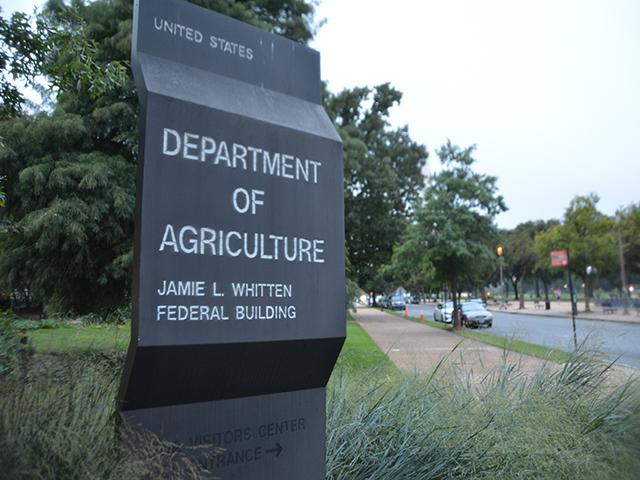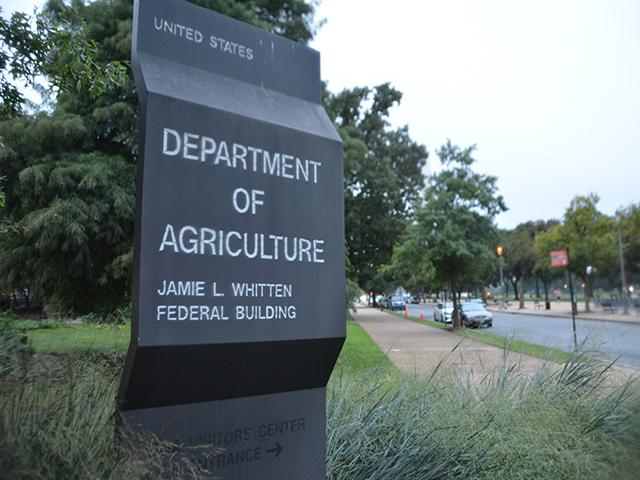Ag Policy Blog
White House Threatens to Veto House USDA Appropriations Bill
As the House of Representatives plans to take up the annual appropriations bill for USDA and FDA later this week, the White House on Monday laid out its criticisms of the funding bill that would likely lead to its veto.
The standoff is one of several over appropriations bills between the Biden administration and Congress that risks a possible government shutdown or at minimum a series of funding extensions to keep the federal government operating.
The House Rules Committee will meet Wednesday afternoon to layout the debate rules for H.R. 4368, the funding bill for Agriculture, Rural Development, Food and Drug Administration and Related Agencies. The bill was moved out of committee last month on a party-line vote as the House GOP inserted several measures to rescind funds or block the spending of money for a variety of issues in USDA and FDA.
Lawmakers have also introduced more than 160 possible amendments to the funding bill as well.
The White House, in a statement of policy on the bill, noted the president and House Speaker negotiated a budget deal in May, the Fiscal Responsibility Act, that set spending levels for fiscal years 2024 and 2025. The USDA and FDA funding bill is just one bill that has proposed spending levels below those negotiated in the Fiscal Responsibility Act.
The White House stated, "If the president were presented with H.R.4368, he would veto it."
Among the criticisms, the White House cited two provisions in the funding bill would rescind money for "economically distressed farm loan borrowers," and rescind funds from the American Rescue Plan mean tot provide support for socially disadvantaged farmers and ranchers. The bill would eliminate $2.2 billion in assistance for USDA farm-loan borrowers who experienced discrimination.
The House bill would also rescind $500 million in grant funding for the Rural Energy for America Program (REAP), which offers loans and grants to farmers and small businesses in rural communities for renewable energy projects.
P[L1] D[0x0] M[300x250] OOP[F] ADUNIT[] T[]
Another concern raised by the White House is that it would block USDA from creating rules under the Packers and Stockyards Act tied to competition and transparency in livestock markets. Coupled with that, the White House stated the bill would also require the temporary furlough of up to 200 employees in the Agricultural Marketing Service.
The bill also would prohibit USDA from adding new staff in the Washington, D.C., region where USDA is headquartered.
The bill also would eliminate USDA's climate hubs and funding for research on climate change at USDA as well "when the nation's farmers and ranchers are on the frontlines facing the challenges of a changing climate," the White House stated.
With USDA's funding bill tied to FDA, the White House also opposes a provision that would restrict the use of mifepristone, a pill used to terminate pregnancies that FDA approved more than two decades ago.
Among the 160-plus amendments for the bill tied to agriculture, some include:
Rep. Marjorie Taylor Greene, R-Ga., introduced a slew of amendments, including one that would expand any ban on the sale of agricultural land to include all foreign countries. Taylor Greene also would prohibit any assistance for the government of Ukraine.
Rep. Mary Miller, R-Ill., would prevent USDA from implementing recommendations made earlier this year by the USDA Equity Commission.
Rep. Andy Biggs, R-Ariz., has multiple amendments to dial back agency funds such as the Office of Chief Economist, Agricultural Marketing Service (AMS), National Agricultural Statistics Service (NASS) and National Institute of Food and Agriculture (NIFA) back to fiscal-year 2019 levels.
Rep. Rick Crawford, R-Ark., has an amendment that would prevent the closing of any Farm Service Agency Office, including those still closed or on a hybrid schedule related to COVID-19. Crawford also wants to ensure no funds from USDA would go to add solar panes on prime farmland.
Rep. Harriet Hageman, R-Wyo., wants to prevent any funds from being used to mandate electronic eartags for cattle and bison. She also wants to ensure no fugs go to reduce methane emissions from livestock or fund research into alternative proteins.
The bill text, meeting announcement and full list of proposed amendments https://rules.house.gov/…
Chris Clayton can be reached at Chris.Clayton@dtn.com
Follow him on Twitter @ChrisClaytonDTN
(c) Copyright 2023 DTN, LLC. All rights reserved.






Comments
To comment, please Log In or Join our Community .